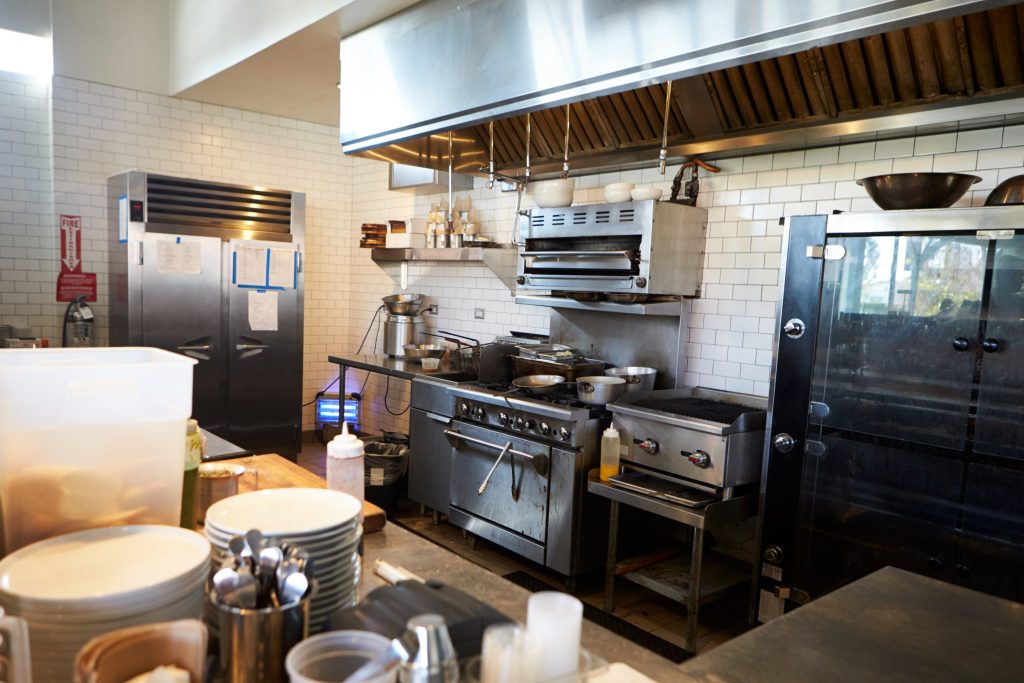
Commercial kitchen vent hoods play a vital role in maintaining a safe cooking environment. These systems remove smoke, grease, and harmful airborne particles that accumulate during daily food preparation. Regular cleaning of vent hoods prevents dangerous grease buildup that can lead to devastating kitchen fires and compromised air quality.
Many restaurant owners and kitchen managers underestimate the importance of consistent hood maintenance. Grease deposits can silently accumulate in hood systems and ductwork, creating fire hazards that put staff, customers, and property at risk. Beyond fire safety, neglected hoods can lead to code violations, increased insurance premiums, and costly emergency repairs.
Professional hood cleaning goes beyond surface-level appearance. A thorough cleaning removes hidden grease deposits throughout the entire exhaust system, ensures proper ventilation performance, and helps maintain compliance with fire safety regulations. Regular maintenance also extends equipment life and helps avoid unexpected downtime.
Key Takeaways
- Neglected vent hoods create serious fire hazards due to grease accumulation
- Professional cleaning prevents code violations and maintains safe air quality
- Regular maintenance extends equipment life and reduces costly emergency repairs
The Hidden Risks of Skipping Regular Vent Hood Cleaning
Regular cleaning of commercial kitchen vent hoods is critical for maintaining safety, health standards, and operational efficiency. Neglecting this essential maintenance puts kitchens at serious risk across multiple dimensions.
Fire Hazards and Safety Concerns
Grease accumulation in vent hoods creates a dangerous fire risk. The National Fire Protection Association reports that nearly 60% of restaurant fires start from grease buildup in exhaust systems.
When grease collects on hood surfaces and in ductwork, it becomes highly flammable. A single spark or flame can ignite this residue, causing rapid fire spread throughout the ventilation system.
Fire suppression systems may fail to operate properly when blocked by excessive grease deposits. This compromises a critical safety mechanism meant to protect the kitchen.
Health Implications From Grease Buildup
Dirty vent hoods can release harmful particles and contaminants into the air. These pollutants may include carbon monoxide, nitrogen dioxide, and volatile organic compounds.
Kitchen staff exposure to these airborne contaminants can cause respiratory issues, headaches, and eye irritation. Long-term exposure raises risks of more serious health conditions.
Grease-laden air creates an unsanitary cooking environment. Food contamination becomes more likely as particulates settle onto prep surfaces and cooking equipment.
Impact on Ventilation System Efficiency
Grease accumulation restricts proper airflow through the exhaust system. This forces ventilation equipment to work harder, increasing energy consumption and utility costs.
Poor ventilation leads to excess heat and smoke in the kitchen workspace. Staff comfort and productivity suffer in these conditions.
Components like fans and motors experience increased wear when fighting against grease buildup. This accelerates equipment deterioration and leads to premature system failure.
Professional cleaning helps maintain optimal airflow and extends equipment lifespan. Regular maintenance prevents costly repairs and unexpected system breakdowns.
Protecting Your Facility with Professional Solutions
Professional vent hood cleaning services protect restaurants through rigorous safety protocols, regulatory compliance, and scheduled maintenance programs.
Code Compliance and Regulatory Requirements
Local fire codes mandate regular cleaning of commercial kitchen exhaust systems. Most jurisdictions require professional cleanings every 3-6 months, depending on cooking volume.
Fire marshals conduct routine inspections to verify compliance with NFPA 96 standards. These standards specify cleaning frequencies and documentation requirements.
Violations can result in fines, operational shutdowns, or insurance coverage issues. Professional cleaning services maintain detailed records of all maintenance work for inspection purposes.
Benefits of Scheduling Routine Cleanings
Regular professional cleanings reduce fire risks by removing grease buildup throughout the exhaust system. Clean systems operate more efficiently, improving ventilation and air quality.
Preventive maintenance catches minor issues before they become major problems. This approach typically costs less than emergency repairs or system replacements.
Professional cleaning extends equipment lifespan and maintains manufacturer warranties. Clean exhaust systems also consume less energy, reducing utility costs.
How Hood Safe LLC Ensures Comprehensive Safety
Hood Safe LLC technicians follow a detailed inspection and cleaning protocol for every system component. This includes hoods, filters, ducts, fans, and roof units.
Our team uses specialized equipment and environmentally safe cleaning agents to remove grease accumulation effectively. Each cleaning includes:
- Complete system inspection
- Photo documentation
- Detailed service reports
- NFPA 96 compliance verification
We provide 24/7 emergency services and customize cleaning schedules based on individual facility needs.
